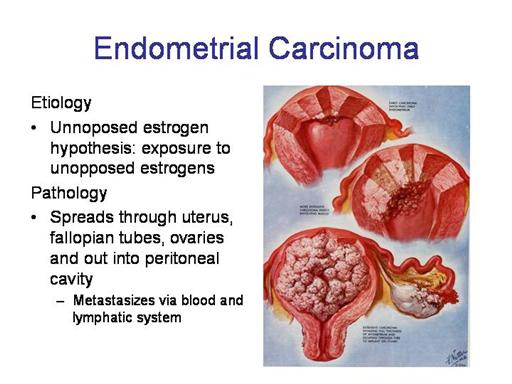Unopposed estrogen hypothesis is the
theoretical framework used to explain the relationship between
endogenous steroid hormones and endometrial cancer risk. This hypothesis
proposes that that endometrial cancer may develop as a result of the
mitogenic effects of estrogens, when these are insufficiently
counterbalanced by progesterone. In etiological terms, any factor that
increases exposure to unopposed estrogens (such as estrogen therapy
obesity, and irregular menstrual cycles) tends to increase the risk of
the disease, while factors that decrease exposure to estrogens or
increase progesterone levels (such as oral contraceptives or smoking)
tend to be protective.
